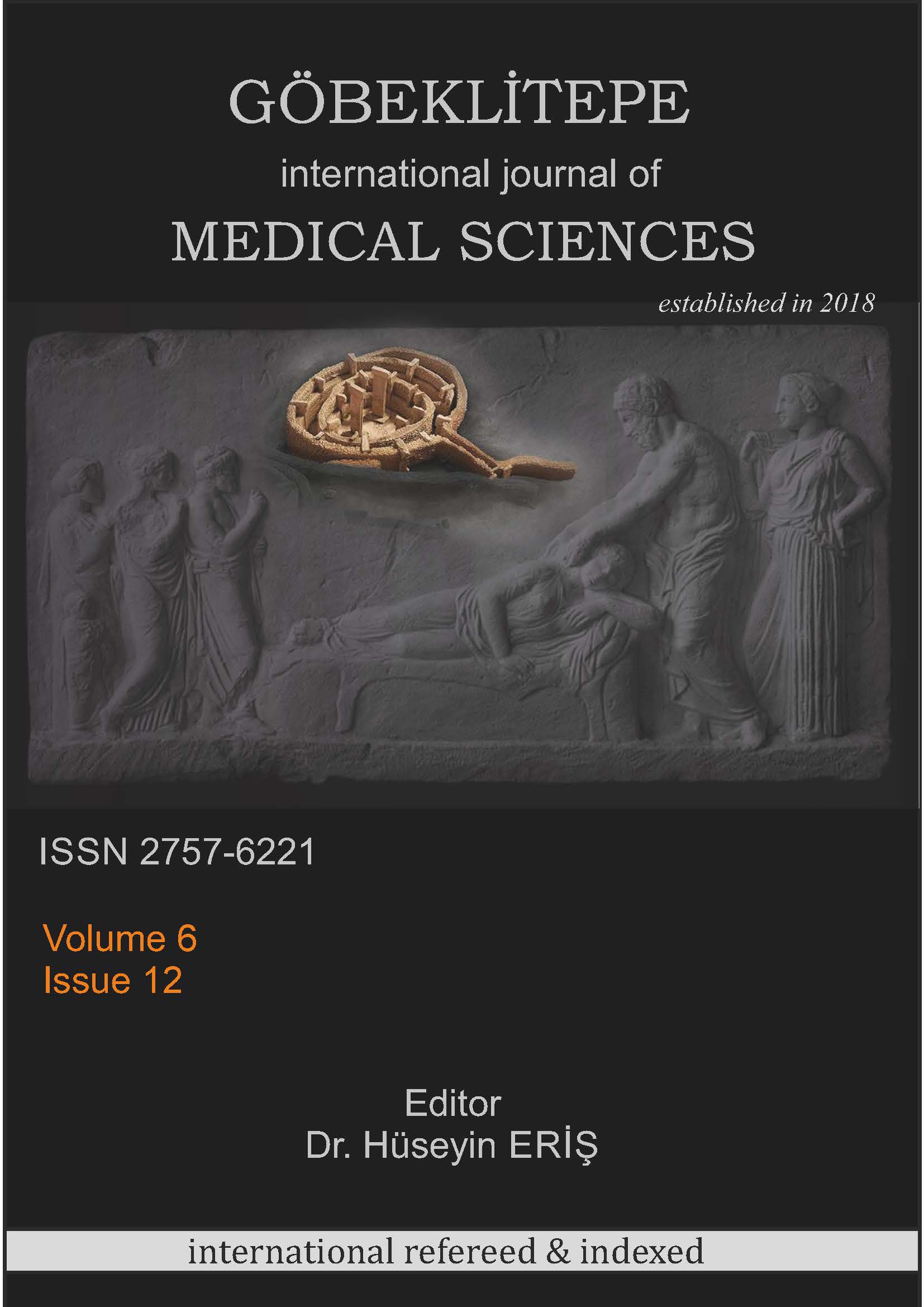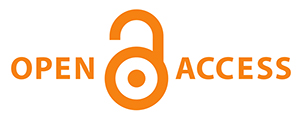LEARNED RESOURCEFULNESS, RATIONAL DRUG USE, AND ATTITUDE OF PATIENT RIGHTS USING IN PREGNANT WOMEN
PREGNANT, LEARNED RESOURCEFULNESS, RATIONAL DRUG USE, PATIENT RIGHTS
DOI:
https://doi.org/10.55433/gsbd/152.Keywords:
Learned Resourcefulnes, Rational Drug Use, Attitude of Patient Rights Using, Pregnant WomenAbstract
It was aimed to determine the learned resourcefulness, rational drug use and patient rights knowledge levels of pregnant women. The study was carried out in accordance with the qualitative research design and was supported by quantitative data. 16 pregnant women participated in the study. Data were collected using Introductory Information Form, Rosenbaum’s Learned Resourcefulness Scale, Rational Drug Use Scale, and Patient Rights Using Attitude Scale. The questions prepared to the views and thoughts of pregnant women about pregnancy processes. An important factor that determines whether pregnant women are satisfied with the service provided despite receiving equal service delivery is the limited availability of hospital facilities. These limited opportunities include factors such as personnel and equipment. It has been understood that their satisfaction with these services (such as receiving attention, getting adequate and understandable answers) varies according to their level of learned resourcefulness and knowledge of patient rights. Due to limited opportunities, sometimes the lack of respect for the privacy and values of pregnant women affected their satisfaction with health services and caused them to have an opinion that the health personnel were indifferent to them. Pregnant women are very compliant in complying with the recommendations given by the health personnel; in general, emotion-focused coping with stress is applied, very few of them are able to cope with problem-focused; It is understood that widespread negative information about the harm of smoking on health is internalized and cigarette consumption is terminated during pregnancy. It is recommended that pregnant women benefit more effectively from patient rights by establishing empowerment programs that enable them to have sufficient knowledge about rational drug use and increase their level of learned resourcefulness.
References
Resmî Gazete. (1998). Hasta hakları yönetmeliği. T.C. Cumhurbaşkanlığı Mevzuat Bilgi Sistemi.
Özlü, T. (2005). Hasta Hakları; Hakkınız Var Çünkü Hastasınız. 1.Baskı. İstanbul: Timaş Yayınları.
Cavlak, H., Bostancıoğlu, D. (2015). Avrupa Birliğine uyum sürecinde Türkiye’deki sağlık ve hasta hakları. IAAOJ Social Science, 2(2), 27-42.
Oktay, A. A., Taş, F., Gülpak, M., Yel, F. (2021). Bir üniversite hastanesinde hastaların hasta haklarını kullanma tutumunun incelenmesi. Ege Üniversitesi Hemşirelik Fakültesi Dergisi, 37(2), 131-139. https://doi.org/10.53490/egehemsire.706867
Mahanoğlu, E., Soysal, A. (2020). Hasta hakları algısının, bazı demografik değişkenlere göre incelenmesi. İnönü Üniversitesi Sağlık Hizmetleri Meslek Yüksek Okulu Dergisi, 8(3), 779-801. https://doi.org/10.33715/inonusaglik.756568
Zaybak, A., İsmailoğlu, E. G. (2012). Bir üniversite hastanesinde hastaların hasta haklarını kullanma tutumunun incelenmesi. Florence Nightingale Journal of Nursing, 20(2), 104-111.
Taşçı, D. K. (2007). Doğum yapan hastaların aldıkları bakımı hasta hakları açısından değerlendirmeleri. Anadolu Hemşirelik ve Sağlık Bilimleri Dergisi, 10(3), 26-33.
Bayram Değer, V., Çifçi, S., Utli, H., Acar, D. (2020). Examination of pregnant women’s knowledge level and attitudes towards rational drug use applying to healthcare facility in Mardin. International Journal of Health Services Research and Policy, 5(3), 315-329. https://doi.org/10.33457/ijhsrp.793342
Demir, R., Taşpınar, A. (2019). Gebelikte akılcı ilaç kullanımı. Archives Medical Review Journal, 28(3), 193-200. doi:10.17827/aktd.426788
Liew, Z., Ritz, B., Rebordosa, C., Lee, P. C., & Olsen, J. (2014). Acetaminophen use during pregnancy, behavioral problems, and hyperkinetic disorders. JAMA Pediatrics, 168(4), 313-320. DOI: 10.1001/jamapediatrics.2013.4914
Molla, F., Assen, A., Abrha, S., Masresha, B., Gashaw, A., Wondimu, A. et al. (2017). Prescription drug use during pregnancy in Southern Tigray Region, North Ethiopia. BMC Pregnancy and Childbirth, 17, 170. DOI 10.1186/s12884-017-1359-8
Miral, M., Kızılkaya Beji, N. (2017). Gebelikte ilaç kullanımı ve danışmanlık. HSP, 4(2), 142-148. DOI:10.17681/hsp-dergisi.316897
Oliveire-Filho, A., Veire, A. E. S., Silvo, R. C., Neves, S. T. F., Gama, T. A. B., Lima, R. V., Oliveire, W.R., Dias, J. M. (2017). Adverse drug reactions in high risk pregnant women. Saudi Pharmaceutical Journal, 25(7), 1073-7. DOI: 10.1016/j.jsps.2017.01.005
Riley, L. E., Cahill, A. G., Beigi, R., Savich, R., Scade, G. (2017). Improving safe and effective use of drugs in pregnancy and lactation. American Journal of Perinatology, 34(8), 826-32. doi: 10.1055/s-0037-1598070
Sinclair, M., Lagan, B. M., Dolk, H., McCullough, J. (2018). An assesment of pregnant women’s knowledge and use of the ınternet for medication safety ınformation and purchase. Journal of Advanced Nursing, 74(1), 137-47. https://doi.org/10.1111/jan.13387
Çobanoğlu, A. (2020). Gebelerin ilaç kullanım durumu ve güvenli ilaç kullanımı bilgilerinin incelenmesi. Anadolu Hemşirelik ve Sağlık Bilimleri Dergisi, 23(4), 463-469. https://doi.org/10.17049/ataunihem.499684
Baltaş, A., Baltaş, Z. (2012). Stres ve Başa Çıkma Yolları. İstanbul: Remzi Kitapevi.
Dağ, İ. (1991). Rosenbaum’un öğrenilmiş güçlülük ölçeğinin üniversite öğrencileri için güvenirliği ve geçerliği. Türk Psikiyatri Dergisi, 2(4), 269-274.
Rosenbaum, M., Ben-Ari, K. (1985). Learned helplessness and learned resourcefulness: Effects of noncontingent success and failure on ındividuals differing in self-control skills. Journal of Personality and Social Psychology, 48, 198-215.
Rosenbaum, M., Jaffe, Y. (1983). Learned helplessness: The role of ındividual differences in learned resourcefulness. British Journal of Social Psychology, 22, 215-225.
Rosenbaum, M. (1980). A schedule for assessing self-control behaviors: Preliminary findings. Behavioral Therapy, 11, 109-121.
World Health Organization. (2002). Promoting rational use of medicines: Corecomponents. Genova: World Health Organization Policy Perspectives on Medicines. No:5.
T.C. Sağlık Bakanlığı. (2011). Toplumun akılcı ilaç kullanımına bakışı. Sağlık Bakanlığı Yayın No: 856 http://www.akilciilac.gov.tr/wp-content/uploads/2013/05/toplumun_akilci_ilac_kullanimina_bakisii.pdf
T.C. Sosyal Güvenlik Kurumu. 2013. Topluma yönelik akılcı ilaç kullanımı. SGK yayın no: 93 http://www.tki.gov.tr/Dosyalar/Dosya/akilciilackul.pdf
Savaşır, I., Şahin, N. H. (1997). Bilişsel-Davranışçı Terapilerde Değerlendirme: Sık Kullanılan Ölçekler. Ankara: Türk Psikologlar Derneği Yayınları.
Demirtaş, Z., Dağtekin, G., Sağlan, R., Alaiye, M., Önsüz, M. F., Işıklı, B., et al. (2018). Akılcı ilaç kullanımı ölçeği geçerlilik ve güvenilirliği. ESTÜDAM Halk Sağlığı Dergisi, 3(3), 37-46.
Erbil, N. (2009). Hasta hakları kullanma tutumu ölçeğinin geliştirilmesi. Uluslararası İnsan Bilimleri Dergisi, 6(1), 825-838.
Balcı, A. (2011). Sosyal Bilimlerde Araştırma Yöntem, Teknik ve İlkeler. Ankara: Pegem Yayıncılık.
Yıldırım, A., Şimşek, H. (2008). Sosyal Bilimlerde Nitel Araştırma Yöntemleri. Ankara: Seçkin Yayıncılık.
Uçman, T., Uysal, N. (2021). Yetişkin bireylerde akılcı ilaç kullanımı ve etkileyen faktörlerin belirlenmesi. Bandırma Onyedi Eylül Üniversitesi Sağlık Bilimleri ve Araştırmaları Dergisi, 3(2), 126-133. https://doi.org/10.46413/boneyusbad.859525
Korkut, B., Sevinç, N. (2021). Ölüm kaygısı ile akılcı ilaç kullanımı arasındaki ilişki. Jour Turk Fam Phy, 12(2), 76-83. doi: 10.15511/tjtfp.21.00276
Golding, J., Gregory, S., Clark, R., Ellis, G., Iles‐Caven, Y., & Northstone, K. (2020). Associations between Paracetamol (Acetaminophen) Intake between 18 and 32 weeks gestation and neurocognitive outcomes in the child: A longitudinal cohort study. Paediatric and Perinatal Epidemiology, 34(3), 257-266. DOI: 10.1111/ppe.12582
Tengilimoğlu, D., Kısa, A., Dziegielewski, S. F. (2000). What patients know about their rights in Turkey. Journal of Health and Social Policy, 12(1), 53–69. https://doi.org/10.1300/J045v12n01_04
Zülfikar, F., Ulusoy, M. F. (2001). Are patients aware of their rights? Nursing Ethics, 8, 487–498. https://doi.org/10.1177/09697330010080060
Hussein J. (2020). COVID-19: What Implications for Sexual and Reproductive Health and Rights Globally? Sexual And Reproductive Health Matters 2020;28(1): 1746065. DOI: 10.1080/26410397.2020.1746065
Downloads
Published
Versions
- 2024-07-02 (2)
- 2023-07-11 (1)
How to Cite
Issue
Section
License
Copyright (c) 2023 Göbeklitepe Sağlık Bilimleri Dergisi

This work is licensed under a Creative Commons Attribution 4.0 International License.




